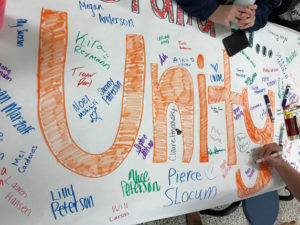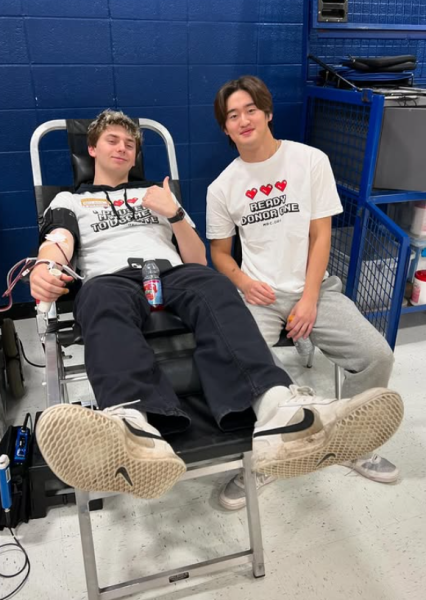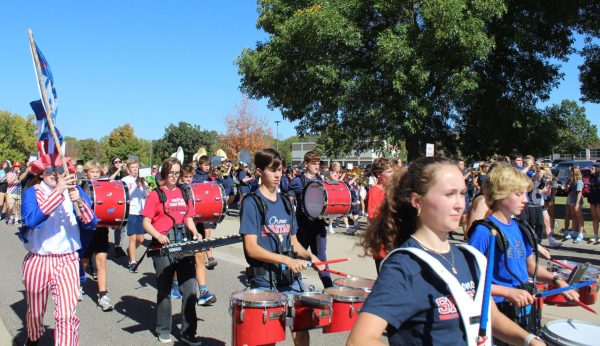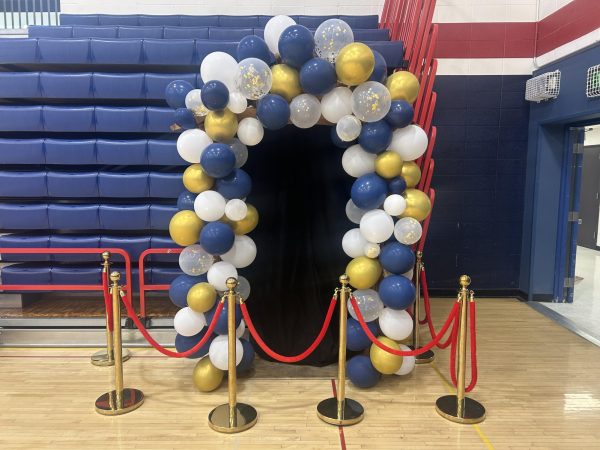Respecting Others’ Privacy at OHS
Respecting others’ privacy is one idea for being kind.
Orono Public Schools have been teaching character counts since students have been able to read and write. Starting off with learning the six pillars of character: trustworthiness, caring, respect, responsibility, fairness, and citizenship. Recently a few Orono students have been ignorant of what they have been taught and that they are in a school of character and are breaking school policy.
In the Orono Handbook, there are rules that students are expected to know and follow with no exceptions. On school property, students are not to invade the privacy of others with their personal devices. This includes taking pictures, videos or voice recordings and keeping them for themselves or posting them to social media. This has recently become a more significant issue at OHS.
Orono substitute teacher Dorothy Henry has been substituting at Orono for many years now and has gotten to know many of the students very well. This fall, she was subbing at OHS and she came to school wearing a fashion hat. Students in the classroom said they witnessed other students taking pictures of her to post onto their snapchat stories as a way of making fun of her.
“You can’t just take pictures of someone without asking them first,” Henry said. She said she did not give students permission to take pictures of her.
“I had no idea anybody was taking pictures of me. If they would have just asked that would have been fine. Electronics are used for a lot of school work so it’s hard for me to know that students are doing the right thing on them,” Henry said.
This was a disregard for her right to privacy, and students need to know that their actions have ramifications.
“It’s an invasion of privacy. I know most students have grown up where the norm is a constant presence on social media, but that isn’t the same for everyone. Each person needs to make that decision for him or herself. It is completely unethical to post a picture or video of someone when they haven’t given prior authorization,” English teacher Kyle Ann Herring said.
Herring said she has learned after-the-fact that students have recorded her and taken pictures of her without her permission.
“I am a very facetious person and am very emotive when teaching my classes. I don’t want to second-guess everything I say in class in fear because it might be taken out of context and put all over social media,” Herring said.
When an image is posted to social media, there is no way of telling who saved it or screenshotted it into their own photo library. Even if you delete it, it’s never gone and you never know what people are doing or saying about the image.
“Once something is out there, it’s permanent, and anyone else could take that image of you and misconstrue it. That’s the scary part for me,” Herring said.
Teachers and staff should not have to be afraid that anything that they say or do could be recorded at any moment in the day, and made out to be something that it is not. Students may need to revisit what is appropriate phone use during the school day, and make sure that they have permission to post something about another individual.
Students need to use their devices for the right reasons, otherwise there may be consequences that affect everyone.
























































